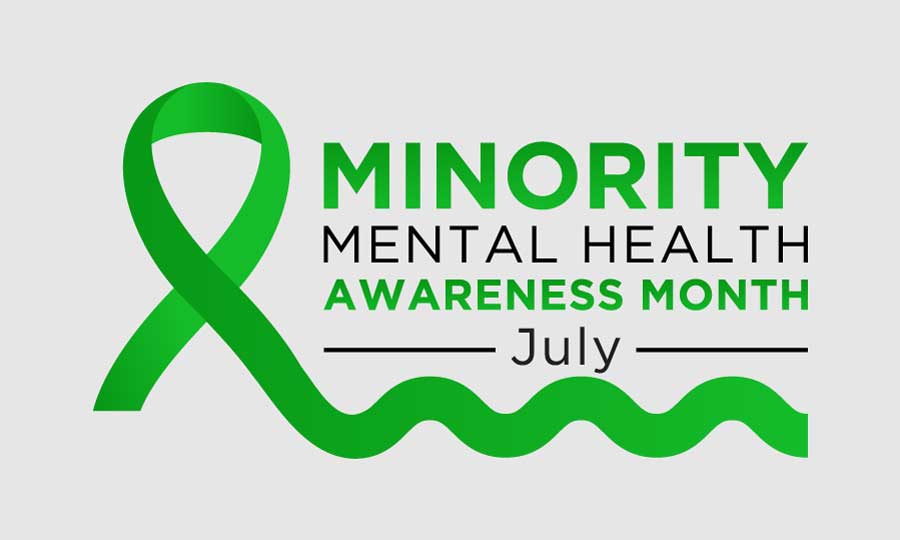This July is Minority Mental Health Month and there may be some of you who are wondering: Doesn’t the distinction of minority mental health further divide and isolate minority communities? Is “diversity” no more than a buzzword since the term has become so overused? Wouldn’t a whole month devoted to minority mental health divert attention from the nationwide mental health crisis?
Taking these questions into consideration, it’s important to keep in mind that mental illness doesn’t discriminate. Mental illness affects 1 in 5 adults regardless of their race, gender, religion, or sexual orientation. The resources that identify and treat mental health conditions are not often equally distributed among individuals of different races, despite the fact that mental health conditions affect people of all races equally. Among African Americans, unmet mental health needs and a lack of knowledge about mental illness contribute to 20% higher rates of major depressive disorder, suicide, and posttraumatic stress disorder.
The reality of these issues is what makes National Minority Mental Health Month so important. Our national mental health care system is filled with inequalities, and this month we are able to acknowledge and begin to remedy those inequalities. Three areas are especially relevant to understanding what makes mental health in African American communities different:
Identity
“Strong, independent black women” symbolizes a troubling reality for many African American women. As long as black women think they must always be strong and independent, they may not seek or accept mental health care if they really need it. Only 7 percent of black women with symptoms of mental illness seek treatment, according to the California Black Women’s Health Project in 2003. Associating mental illness with “the blues” or a few “bad days” only triggers more isolation and reinforces the stereotype that seeking help is a sign of defeat.
Dialogue
Mental health depends on the ability to voice feelings in a stigma-free and supportive environment. Although African American communities are generally open and safe spaces, discussing mental health issues can pose challenges, especially when it comes to using the right terminology about the symptoms of mental disorders. Terminology such as “crazy” fails to identify serious mental illnesses and discourages individuals from seeking help. A family or spiritual community is an important source of emotional support in African American life, but they are most effective when combined with essential professional medical or therapeutic treatment.
Treatment
In minority communities, there is often a lack of dialogue regarding mental health issues, which deters individuals from seeking treatment. A number of mental illnesses affect African American and Caucasian adults at similar rates, but African Americans utilize mental health services at half the rate of Caucasians and at 1/3 the rate of Asian Americans. It is also difficult to find a suitable mental health provider due to a culturally insensitive healthcare system.
The following are a few steps African Americans can take to advocate for mental health in their communities:
Learn More About Mental Illnesses
Understand the symptoms, warning signs, and treatment options of different mental illnesses. People who do not have enough information or are misinformed about mental illness may distrust mental health services. Having an understanding of mental illnesses is not only beneficial to your own well-being, but it allows you to better support loved ones suffering from mental illness.
Encourage Stigma Free Conversations
Educate others with what you’ve learned. Change the way you talk about mental health with your family, friends, and spiritual community. It reduces stigma surrounding mental health by recognizing and respecting a person’s condition and encouraging them to seek treatment.
Find Mental Health Care That Works For You
When seeking mental health treatment, it’s important to find a provider with cultural competence. In other words, your provider actively seeks to understand your culture and beliefs and how they might affect your health. A good question to ask providers when seeking care is: “Have you ever treated someone from my cultural background?” and “Will my cultural identity be considered in my care?”


